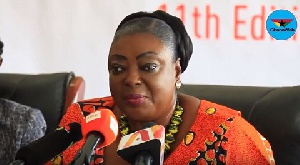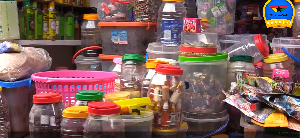Freda Prempeh, the Deputy Minister of Gender, Children and Social Protection has advised women in business to take advantage of government’s stimulus package for Small and Medium Scale Enterprises to expand their businesses.
“Women in any viable economic activity can apply and acquire the facility to expand their businesses to enhance their socio-economic livelihoods amidst COVID-19”, she explained.
She said the package placed priority on women engaged in petty trading and businesses and expressed the hope that more women would benefit from it.
In an interview with the Ghana News Agency (GNA), to mark the World Day Against Child Labour, Mrs Prermpeh who is the Member of Parliament for Tano North constituency in the Ahafo Region warned mothers against allowing their children to hawk and sell on the streets.
Instead, unemployed women must find themselves jobs by engaging in petty trading and business to enable them to apply for the government’s incentives to expand their economic activities and make life better for them and their children.
The World Day Against Child Labour is an International Labour Organisation (ILO), first launched in 2002 to raise awareness and activism to prevent child labour.
It was spurred by ratifications of ILO Convention number 138 (2) on the minimum age for employment and ILO Convention number 182 on the worst forms of child labour.
The World Day Against Child Labour is held every year on June 12 and it is intended to foster the worldwide movement against child labour.
Mrs Prempeh noted that in the face of COVID-19, “where the world is virtually on its knees economically”, parents would be tempted to push children to fend for themselves or also bring something to the table.
“We are not saying that children should not help their parents especially in economic activities; most of us did the same, especially in our part of the world. Parents need to measure what they expose their children to”, Mrs Prempeh explained.
“There are times you see children hawking daily from dawn to dusk with little or no time for themselves. A very good example is what goes on our seas; children are used as labourers on the seas and risk getting drowned. It is no doubt that some go to sea and never return”.
“Other children are made to work as farm hands, especially in our rural communities, exposed to varied forms of harms. Majority of these children are denied access to education or given inadequate education but every child has the right to education, regardless of where they live or who their parents are”.
Poverty, the outspoken legislature noted, remained an obstinate barrier to education generally, hence, the need for women to do business to support the family.
“It is in light of this that basic education; including senior high school education, is free. Every parent must take advantage and enrol their children,” she said.
Mrs Prempeh indicated that every child remained an asset, “but you are only likely to realize it if you make the effort in protecting and bringing out the best in him or her. Our Children are the future of this country; the kind of upbringing they get will greatly will determine the kind of future our country will have.
She said society had the collective responsibility in protecting and ensuring that the rights and privileges of children were guaranteed, saying “for whatever the child becomes in future will have an impact on society either good or bad”.
General News of Wednesday, 17 June 2020
Source: GNA













